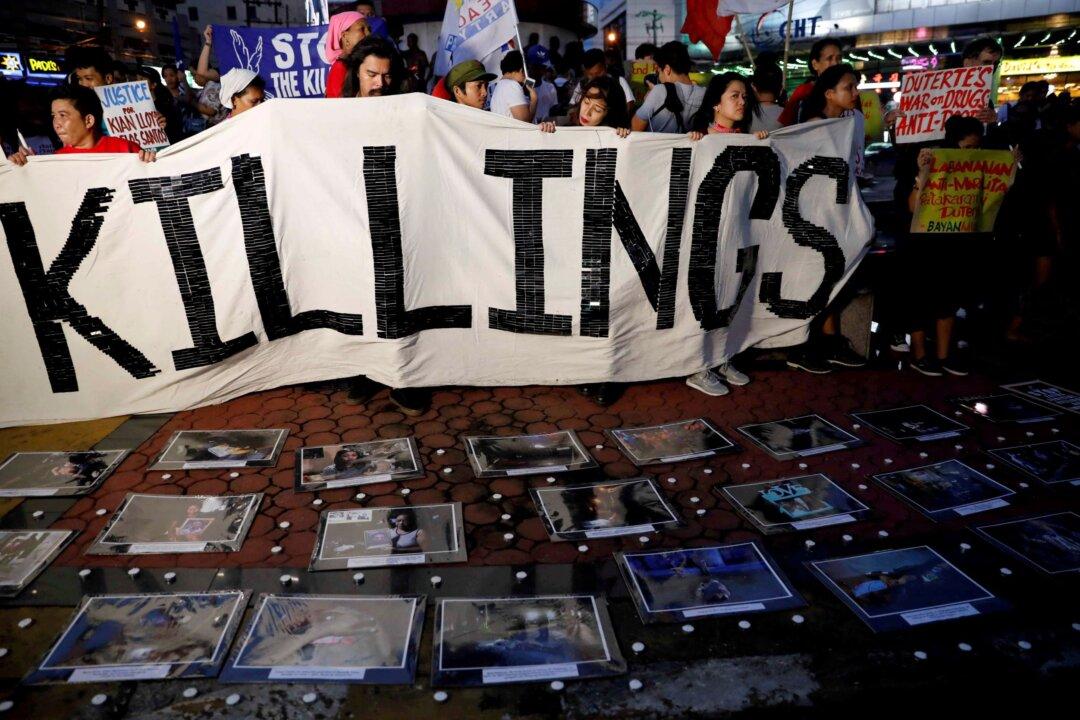There is no evidence showing that the Philippines government is investigating the killings committed in the drug war campaign led by former President Rodrigo Duterte, the Human Rights Watch (HRW) said on Thursday.
Carlos Conde, an HRW researcher in the Philippines, said the group has been monitoring the situation since November and found “no compelling evidence that the government was seriously investigating” or prosecuting those responsible.





